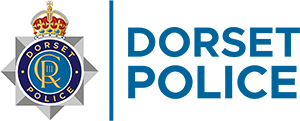
|
||
|
|
||
|
||
|
USE OF DRONES BY CRIMINALS ? |
||
|
USE OF DRONES? - An incident occurred in the Tarrants area recently were horseriders saw a suspicious car, with no number plates, and persons both in the vehicle and standing nearby. They were trespassing with no obvious lawful reason to be where they parked. The riders saw that they were operating a Drone. When challenged the car occupants were evasive and slowly made off. The riders were obviously concerned the Drone users were acting without good intent! Dorset Police gets lots of queries regarding Drones. We also have our own in-force Drone Unit. Drones have potential to provide a lot of fun as well as commercial uses. Unfortunately they are also used by criminals , ( eg passing illicit materials/drugs into Prisons. etc ). The Metropolitan Police Provide the following information on Drones: " A drone is a remote-controlled aircraft that doesn’t have a pilot on-board. Drones range from small children’s toys to large military systems. This includes remote-controlled model planes and helicopters. There are different rules for different types (categories) of drone flight. The categories depend mainly on the weight of the drone, where you intend to fly, and how close you will be to people and built-up areas (towns and cities). The Drone and Model Aircraft CodeThe Drone and Model Aircraft Code is like the Highway Code for drones. It was created by the Civil Aviation Authority (CAA) and it tells you how to fly a drone legally and safely. RegistrationThe operatorThe operator of a drone is usually the owner. If a drone is not owned by a single person, then a designated person known as the manager is the operator. For example, if a club owns a drone that members can use, then the club must designate a manager for the drone. If you are the operator you must register with the Civil Aviation Authority (CAA) and get an OperatorID if the drone: weighs over 250g or has a camera that can take photos or record video You must clearly display your OperatorID on every drone you own or manage. ToysYou don’t need an OperatorID for a drone that is classed as a toy. Your drone is likely to be a toy if: maker or shop describes it as a toy you bought it from a toy shop it is marked as suitable for under 14s it was advertised or packaged to attract children The pilotAnyone flying (piloting) a drone that weighs over 250g must pass a basic test with the CAA to get a FlyerID. They must carry their FlyerID details at all times while flying. Some categories have extra requirements for pilots. InsuranceYou need insurance if: you are not using it for sport or recreation – for example you are using it for work or your drone weighs over 20kg Insurance must be at least EC 785/2004 standard. Flight rulesThis summary of the rules applies to most drone flights. But you must make sure you know which category your drone is in and exactly which rules apply. Don’t endanger anyone or anything while flying a drone. You must be able to see the drone (including the space around it) at all times. Don’t fly if you’ve drunk alcohol or taken drugs. Respect other people’s privacy, and know what you can and cannot do with photos and videos. Don’t fly: over crowds (known as ‘assemblies’ in the rules) over 400ft (120m) from the ground in Restricted Airspace, for example near aerodromes, unless you get permission where fire, police or ambulance services are responding to an emergency, unless you get permission Depending on which category of drone you’re flying you may need to stay at least: 50m away from crowds and other people 150m away from built-up areas (towns and cities) The lawThe laws on flying drones are part of the Air Navigation Order 2016. In the law: a drone is called an Unmanned Aircraft (UA) the whole system used to fly a drone (including the controller or mobile app) is called an Unmanned Aerial System (UAS) the Drone Operator is the person or organisation that owns or manages the drone the Drone Pilot is whoever is actually flying the drone The most important sections of the rules for drones are articles 265A to 265F, which are the rules on Drone Operators, Drone Pilots and Flight Categories. If you think someone may be breaking the lawIs it an emergency?
Call 999 now in emergency situations like these: there is an immediate danger to life someone is using violence or is threatening to be violent someone is flying a drone close to a no-fly zone, like a prison or an airport If you’ve pre-registered with the emergencySMS service, use our textphone service 18000 or text us on 999. Call 999 BSL to use a British Sign Language interpreter. If it's not an emergencyReport onlineIf you’ve read the rules and you think someone might be breaking the law but it's not an emergency, you can report a crime to us online. Police powersOur powers to do with drones are in part 3 of the Air Traffic Management and Unmanned Aircraft Act 2021. If we think a drone could be connected to an offence, we can: make you land your drone stop and search people or vehicles to find drones or drone equipment confiscate and keep drones or drone equipment found during a search We can require you to show us: registration details and other information (for both pilots and operators) evidence of permission to fly where necessary (for example to fly near an aerodrome) We can also check a drone to understand which rules apply to it.
| ||
Reply to this message | ||
|
|




